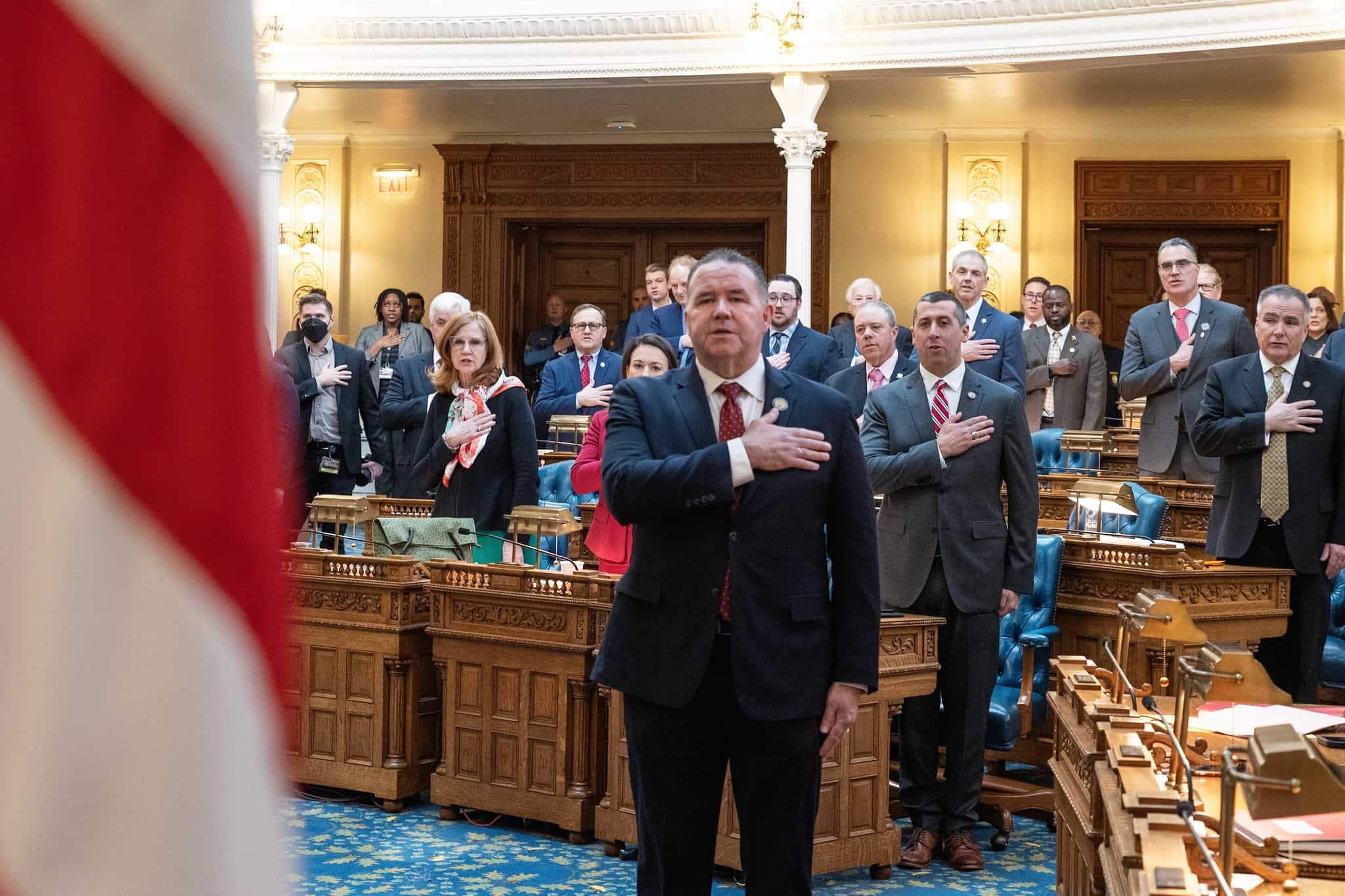By Assemblyman Alex Sauickie
Many people were relieved when a spokesperson for President Biden said recently, “The President does not support banning gas stoves – and the Consumer Product Safety Commission, which is independent, is not banning gas stoves.”
The statement was in response to reports that a member of that federal commission, a Biden appointee, expressed concerns that gas stoves emit toxic chemicals and said, “Any option is on the table. Products that can’t be made safe can be banned.” He later said that the commission “isn’t coming for anyone’s gas stoves” and that the commission’s regulations “apply to new products.”
So, the clarification seems to be that the government won’t take your gas stove, but might ban new gas stoves in the future. The commissioner had also said that other options include “setting standards on emissions from the appliances.”
Between 60 and 80 percent of New Jersey households use natural gas for cooking, according to the U.S. Energy Information Administration. In light of the statement from the White House and the clarification from the commissioner, should New Jersey residents let go of any concerns about whether the government will stop them from cooking with gas?
To see if we can find an answer, let’s take a look at some other statements and actions by both President Biden and Governor Murphy on energy.
“I want you to look at my eyes. I guarantee you, I guarantee you we’re going to end fossil fuels,” President Biden said in New Hampshire as a candidate in 2019. Also, as a candidate in 2020, Biden said, “We are going to get rid of fossil fuels.” As president, Biden has set a national goal of 100% “clean” electricity by 2035.
Natural gas is, of course, a fossil fuel. This sure sounds like a promise not necessarily to take your gas stove, but to stop you from using the gas it needs to cook your food.
How about Governor Murphy? His 2019 Energy Master Plan consists of seven “strategies.” These strategies include “decarbonization and electrification of new and existing buildings” and “[d]ecarbonizing and [m]odernizing” the state’s energy system, including “reducing our reliance on natural gas.”
The plan would phase out the use of natural gas, reports NJ Spotlight News. But to be fair, the plan’s finer print says it includes a study “to determine if continued support [of using natural gas] aligns with state goals” (a main goal of the plan is 100% clean power by 2050). So the state will get back to you on whether you can continue to use your gas stove. Meanwhile, the President still has a promise in place that would render such a study meaningless.
Yet just recently, Gov. Murphy pulled the plug on scheduled public hearings on his plan. These hearings were to discuss updating the plan, but they were delayed until later this year. Why? Well, maybe because it’s not a good time to talk about the implications: the forced electrification of a single family home would cost about $20,000.
NJ Spotlight News notes that this is an election year for the Legislature, and “the delay of any updates to the plan could avert tough election-year decisions for the ad- ministration that have the potential to further increase energy bills for consumers.”
Last month, the Murphy administration backed off from proposed regulations that would have required new boilers that heat buildings to be electric rather than gas-powered, costing each building owner about $2 million. This came after strong pushback from a broad coalition of labor and business on the cost and inefficiency of such a forced conversion. Perhaps that raised concerns about how voters would react to costly forced electrification of their homes.
It may be that the administration touched the proverbial hot stove, and got burned.
Alex Sauickie is a lifelong Jackson resident who represents his home town and 13 other towns in the State Assembly.
###
Note: This opinion piece originally appeared in The Jackson Times by Jersey Shore Online in its publication dated February 4, 2023.
